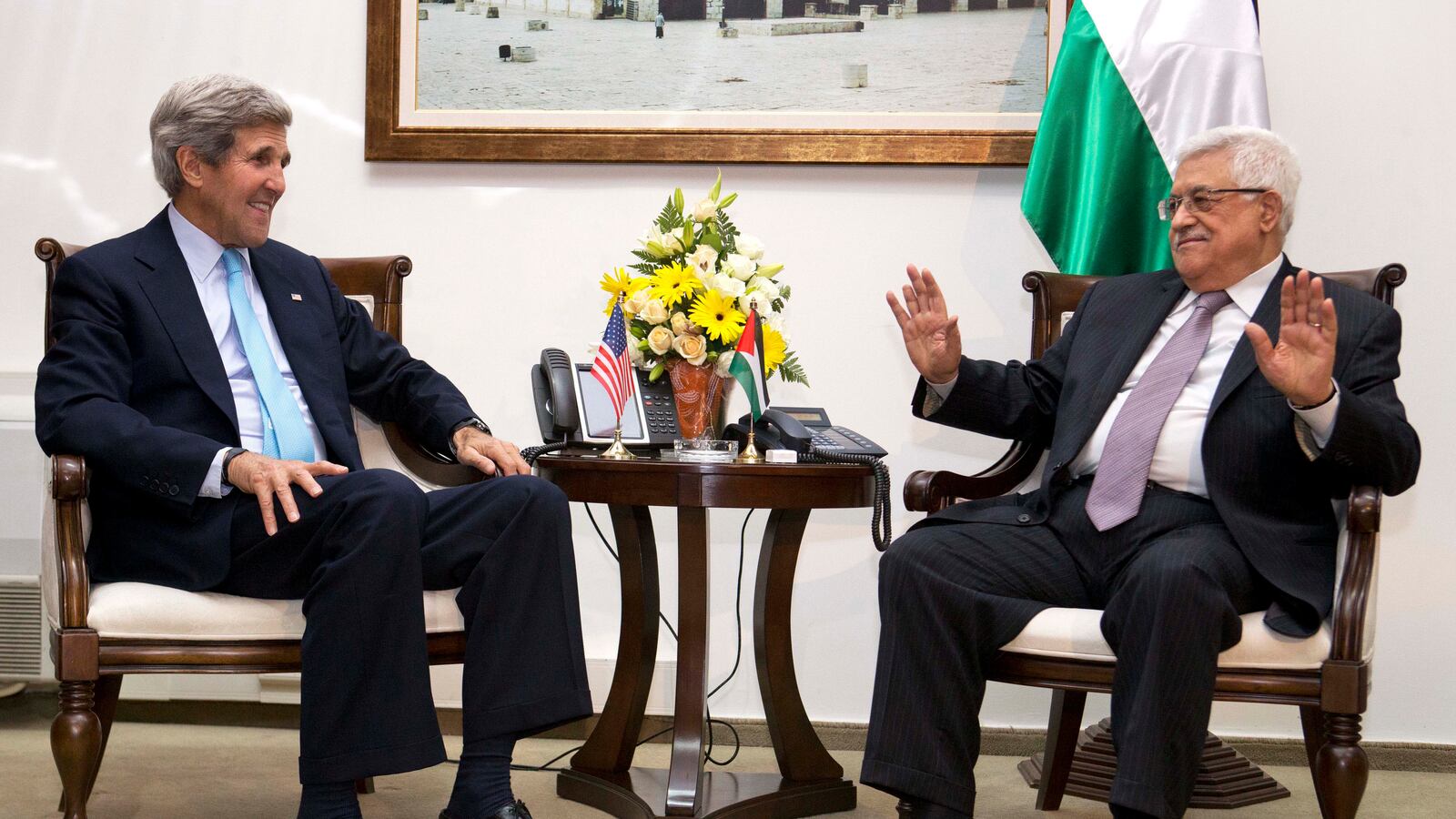Yousef Munayyer’s recent article,”Combating Cynicism on Israeli-Palestinian Peace,” was, ironically, a cynical exercise in Israel-bashing. An article summarized with the line “if Kerry wants to start talks aimed at more than just talking, he must send Israel a message that will force it to recalculate its policies” is more of the same, tired blame game we have been hearing for decades.

Somehow, it is always Israel’s fault. In 1947, David Ben-Gurion and the Jewish Agency accept the painful compromise shaping the U.N.partition, but when five Arab armies reject the compromise and attack—it is Israel’s fault. In 1967, Egypt’s strongman Gamel Abdul Nasser seeks to wipe out the Jewish State, removing the U.N. buffer troops in the Sinai, blocking the Straits of Tiran, saber-rattling for weeks, but when Israel defends itself and wins—it is Israel’s fault. In the 1990s, Israel makes unprecedented concessions to the Palestinians—find me another country that relinquished disputed territory it won in a war of self-defense—but when Yasir Arafat stops negotiating and decides to return to terror, once again—it is Israel’s fault. And today, when there is a culture of “martyrdom,” demonization, rejection, and terrorism shaping much—not all—Palestinian discourse—it is not only Israel’s fault, but, as Munayyer and so many others suggest, entirely upon Israel to make concessions and move the peace process along.
No side is pure or blameless in such a complex conflict, which is what makes it seem intractable. Israel needs to make sure that the voice of Yair Lapid upstages the voice of Naftali Bennett within the coalition, and that the Israeli peace consensus which has always emerged whenever a serious offer has been negotiated triumphs over Israel’s own rejectionist minority.
But here are some confidence-building measures the Palestinians could try, amid all the pressure for Israel to release prisoners with blood on their hands—an assault on the rule of law, I should add—or to freeze settlement building even before the talks begin:
- End the culture of demonization and deligitimization by not naming public squares after “Shaheeds,” and ending the messaging in so many parts of Palestinian national culture celebrating violence over compromise, terror-making over peace-making.
- Acknowledge that Jews are a nation, not just a community of faith, and that Israel has the right to exist as a Jewish State in the Middle East, essentially ending the 1948 war over Israel’s existence and shifting the focus to a post-1967 discussion over what Israel’s borders should be.
- Repudiate the anti-Semitic, anti-Zionist charters of Hamas and Hezbollah, nurturing and broadcasting a pragmatic pro-state, pro-peace Palestinian consensus.
- Continue the state-building of Salam Fayyad rather than following the attempted state-destruction of Hamas and Hezbollah.
- Hold free and fair elections so that Palestinians have a legitimate leader to replace the President (for life?) with an expired mandate, Mahmoud Abbas—and make the elections a referendum on shifting the focus to peace-making and nation-building.
- Encourage a broader democratic political culture with freedom to dissent, freedom of religion, robust civil society, and more respect for basic human rights—of Palestinians, not just Israelis.
- Hold a massive peace march—not protesting against Israel, but protesting for a free, democratic Palestine.
Some Israelis have actually made moves paralleling every one of these suggestions, many of which revolve around the problem of democratic Israel, with all its flaws, being forced to deal with autocratic Palestine. The cliché that democracies don’t fight each other should be seen as a guiding principle of the negotiations—and an answer to the question many of Israel’s critics have failed to answer: why did Oslo fail.
One of the great Oslo shortcomings had to do with the Israeli-American-European delusion that the arch-terrorist Yasser Arafat would become the Middle East’s Nelson Mandela when he was and remained Yasser Arafat. The structural and cultural asymmetry between Israeli democracy and Palestinian autocracy also ends up focusing on Israel’s dynamic, chaotic political debate rather than the more choreographed and less free Palestinian discourse. As Oslo developed, too many peace processors accepted Arafat as “our” dictator, trusting him to shove the peace down Palestinian throats.
If all those who expend so much energy criticizing Israel could instead focus on building a democratic Palestinian political culture, not only would a true peace be more attainable, but the cynicism Munayyer seeks to combat would simply melt away, replaced by the natural by-products of functioning democracies—hope, trust, and freedom.





